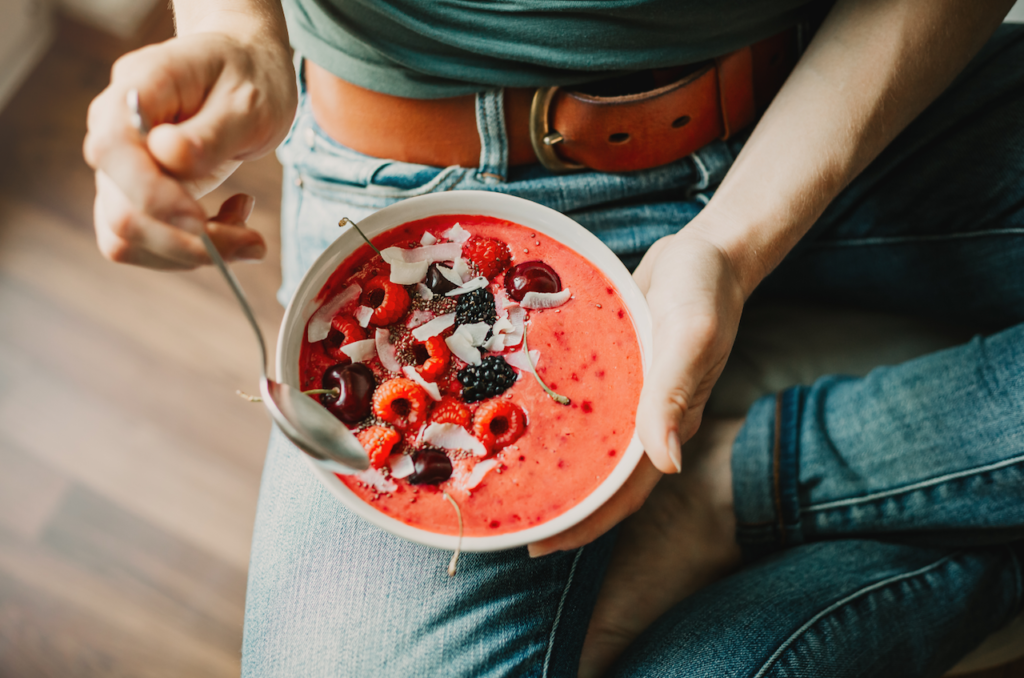Ever looked into a mirror and wondered, “Why am I always so peckish?” Have you ever felt like your hunger is frequently insatiable, with your tum telling you to scoop up that next biscuit with urgency, even after a hearty lunch? You may feel as though these symptoms were manufactured from a certain obscure-esoterica. You’d be wrong; they most likely have their roots firmly planted in reality – and many people often experience episodes of relentless hunger at some point.
Whether it’s being caught rummaging in the midnight kitchen, or hunger pangs intervening like unwelcome guests between meals, it’s alright – almost every single one of us has been there. Rest assured, you’re not alone.
So, instead of peering into the fridge for the fifteenth time this morning, why not peer into this article for a few minutes? Here we explore why you, me and everyone else might always be feeling hungry.
Fast Metabolism
It’s possible that you may be blessed with a fast metabolism. Your metabolism is your body’s ability to turn food into energy. Those with a fast metabolism quickly turn food into energy and so get hungry sooner. A fast metabolism can also make you less prone to putting on weight no matter how much you eat. The downside is that you can get hungry more often – it’s important not to satisfy these cravings by eating the wrong things, as although you won’t necessarily put on weight, your body will get punished in other ways.

Too Much Sugar
Sugar provides our body with a burst of energy. However, this is often followed by a sugar crash. Suddenly the body has no energy, and this can lead us to crave more food (often more sugary food). To beat these cravings, try reducing the amount of sugar in your diet, trying to find that meals satisfy you for longer when you’re not constantly consuming sugar.
Some foods especially known for prolonging fullness include:
- Pulses: This group of plant proteins, including lentils, peas, beans and chickpeas are high in protein and fibre, which help with satiety.
- Lean proteins: Foods like skinless chicken, turkey, haddock, cod, and tofu are excellent sources of lean protein, vital for helping you feel full.
- Oats: Having whole grain porridge for breakfast can keep you satiated until lunch.
- Quinoa: It is a great source of protein and fibre and makes an excellent addition to salads or as a side.
- Nuts and seeds: Almonds, chia seeds, and flax seeds are high in protein and fibre, helping you feel full.
- Greek Yogurt: It can be a nutritious and satisfying snack due to its high protein content.
- Avocados: They are full of healthy monounsaturated fats and can be quite filling.
- Eggs: They are high in protein and found to promote fullness. Eggs are also hugely versatile, which certainly helps!
- Berries: Fruits like strawberries, blackberries, raspberries, or blueberries, are high in fibre, keeping you satiated for longer periods of time, not to mention they’re also rich in antioxidants.
- Dark Chocolate: If you’re looking for a filling dessert, dark chocolate’s combination of fat and bitterness slows its rate of absorption and makes you feel full.

Low Blood Sugar
Of course, too little sugar in our bodies can also cause us to get hungry as we become desperate for energy. Your excessive hunger may be due to the fact that you are experiencing a ‘hypo’. What is a hypo? This is usually a combination of too much insulin and not enough food, resulting in not enough blood sugar to create energy.
Some people naturally produce more insulin and may have to consume more carbs and sugar to make up for this. However this is rare, and hypoglycemia is more often the result of poorly regulated diabetes. Seeing a doctor could help you to diagnose this.
Stress
Stress can affect our appetite in different ways. Some people can’t eat at all when they are stressed. Others get ravenous. Hunger caused by stress is often due to stress consuming huge amounts of our energy, making us want to eat more to get more energy. For others, food can simply provide a small endorphin rush to combat stress (known as comfort eating), which can lead to overeating and unhealthy weight gain. To prevent hunger as a result of stress, find healthy ways to reduce stress in your life.

Dehydration In Disguise
Sometimes, hunger can actually be thirst. When we are dehydrated, our body craves liquids in any form. If we’re also feeling fatigued, food may seem like a better option than liquids – as it can give our bodies the water it needs while also giving us some carbs. Next time you’re hungry, try getting yourself a drink instead and see if this satisfies you.
Thyroid Issues
Your thyroid gland heavily controls your appetite. If your thyroid gland is not working properly, it may overproduce thyroid hormones and make you overly hungry. The thyroid also controls our metabolism, so you may also find yourself losing weight and getting tired more as a result of consuming energy quickly. Thyroid issues may require seeing a doctor for treatment.
Pregnancy
Pregnancy leads to all kinds of strange cravings and can also sometimes be a cause of increased hunger. Even in the early stages of pregnancy, you may start to experience some cravings.

A Body In Motion
Burnt calories shout out for replacement squads and your grumbling belly answers the call. Infusion of carbs, proteins, and fats after exercising become essential to restore the energy lost. Plan your meals around your exercise routine to ensure smooth recovery and quench the potential hunger.
Read: How to find new motivation for exercise
Health Conditions
If you have checked off all the aforementioned reasons, yet your hunger persists, you may need to seek professional advice. Conditions such as diabetes and hyperthyroidism can increase appetite, as we already mentioned, but there are several other medical causes, so it’s worth checking in with your GP if your appetite seems to have increased significantly.
*The information found within this blog post is provided for general informational purposes and is not a substitute for professional advice. Always consult with your healthcare provider before making any changes to your lifestyle, diet, or exercise routine.*





